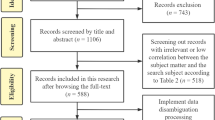Abstract
The rise of the economy's productivity depends on the number of educated employees since the efficiency of performing tasks is enhanced by skillful workers. This paper analyzes the relevance and state-of-the-art performance of educational services and programs for the higher education system's higher contribution to the digital economy. It reviews changes in three common aspects of education concerning digital economy challenges: funding mechanisms for education; changes in the duration of learning; changes in how and what we learn. The systematic mapping study aims to structure the most recent knowledge in higher education to contribute to the digital economy by identifying, classifying, and evaluating the current state of the art in the target research area. The research process followed common steps based on the guidelines of similar systematic mapping studies. A classified portfolio of key publications is recommended, each of which proposes its own sets of educational change solutions in reaction to digital economy challenges. The most commonly cited change in education relevant to the main challenge (integrated skills) in the digital economy is the STEAM movement, which is useful for educators and academic managers to know. Finally, we will show the future research agenda, weaknesses of the study, and observed trends.
Access this chapter
Tax calculation will be finalised at checkout
Purchases are for personal use only
Similar content being viewed by others
References s
Akhmedov, B.A.: Use of information and communication technologies in higher education: trends in the digital economy. Ижтимoий фaнлapдa иннoвaция oнлaйн илмий жypнaли, 71–79 (2022)
Abduvakhidov, A.M., Mannapova, E.T., Akhmetshin, E.M.: Digital development of education and universities: global challenges of the digital economy. Int. J. Instr. 14(1), 743–760 (2021)
Kholiavko, N., Popelo, O., Bazhenkov, I., Shaposhnykova, I., Sheremet, O.: Information and communication technologies as a tool of strategy for ensuring the higher education adaptability to the digital economy challenges. Int. J. Comput. Sci. Netw. Secur. 21(8), 187–195 (2021)
Nataliia, K., Antonina, D., Maksym, D., Artur, Z., Ruslan, L.: The higher education adaptability to the digital economy. Hayчный жypнaл «Becтник HAH PК», (4), 294–306 (2020)
Schweighofer, P., Grünwald, S., Ebner, M.: Technology-enhanced learning and the digital economy: a literature review. Econ.: Concepts Methodologies Tools Appl., 20–33 (2015)
Teixeira, A.F., Gonçalves, M.J.A., Taylor, M.D.L.M.: How higher education institutions are driving to digital transformation: a case study. Educ. Sci. 11(10), 636 (2021)
Fleaca, B., Fleaca, E., Maiduc, S.: Digital transformation and current challenges of higher education (2022)
Núñez-Canal, M., de Obesso, M.D.L.M., Pérez-Rivero, C.A.: New challenges in higher education: a study of the digital competence of educators in Covid times. Technol. Forecast. Soc. Chang. 174, 121270 (2022)
Catal, C., Tekinerdogan, B.: Aligning education for the life sciences domain to support digitalization and industry 4.0. Procedia Comput. Sci. 158, 99–106 (2019)
Huaping, G., Binhua, G.: Digital economy and demand structure of skilled talents—analysis based on the perspective of vertical technological innovation. Telematics Inform. Rep. 7, 100010 (2022)
Broo, D.G., Kaynak, O., Sait, S.M.: Rethinking engineering education at the age of industry 50. J. Ind. Inf. Integr. 25, 100311 (2022)
Cheah, C.G., Chia, W.Y., Lai, S.F., Chew, K.W., Chia, S.R., Show, P.L.: Innovation designs of industry 4.0 based solid waste management: machinery and digital circular economy. Environ. Res. 213, 113619 (2022)
van Meeteren, M., Trincado-Munoz, F., Rubin, T.H., Vorley, T.: Rethinking the digital transformation in knowledge-intensive services: a technology space analysis. Technol. Forecast. Soc. Chang. 179, 121631 (2022)
Malele, V., Ramaboka, M.E.: The design thinking approach to students’ STEAM projects. Procedia CIRP 91, 230–236 (2020)
Horng, J.S., Liu, C.H., Chou, S.F., Yu, T.Y., Fang, Y.P., Huang, Y.C.: Student’s perceptions of sharing platforms and digital learning for sustainable behavior and value changes. J. Hosp. Leis. Sport Tour. Educ. 31, 100380 (2022)
Perignat, E., Katz-Buonincontro, J.: STEAM in practice and research: an integrative literature review. Think. Skills Creativity 31, 31–43 (2019)
van Broekhoven, K., Cropley, D., Seegers, P.: Differences in creativity across art and STEM students: we are more alike than unalike. Think. Skills Creativity 38, 100707 (2020)
Khamhaengpol, A., Sriprom, M., Chuamchaitrakool, P.: Development of STEAM activity on nanotechnology to determine basic science process skills and engineering design process for high school students. Think. Skills Creativity 39, 100796 (2021)
Zharylgassova, P., Assilbayeva, F., Saidakhmetova, L., Arenova, A.: Psychological and pedagogical foundations of practice-oriented learning of future STEAM teachers. Think. Skills Creativity 41, 100886 (2021)
Eshbayev, O.A., Maxmudov, A.X., Rozikov, R.U.: An overview of a state of the art on developing soft computing-based language education and research systems: a survey of engineering English students in Uzbekistan. In: The 5th International Conference on Future Networks & Distributed Systems, pp. 447–452 (2021)
Olszewski, B., Crompton, H.: Educational technology conditions support the development of digital-age skills. Comput. Educ. 150, 103849 (2020)
Author information
Authors and Affiliations
Corresponding author
Editor information
Editors and Affiliations
Rights and permissions
Copyright information
© 2023 The Author(s), under exclusive license to Springer Nature Switzerland AG
About this paper
Cite this paper
Odilovna, O.G., Mavlyanovna, M.G., Toxirovna, M.D., Shuxratovna, A.S., Xamidullayevna, K.F. (2023). What is the State-Of-The-Art Contribution of the Higher Education System to the Digital Economy: A Systematic Mapping Study on Changes and Challenges. In: Koucheryavy, Y., Aziz, A. (eds) Internet of Things, Smart Spaces, and Next Generation Networks and Systems. NEW2AN 2022. Lecture Notes in Computer Science, vol 13772. Springer, Cham. https://doi.org/10.1007/978-3-031-30258-9_37
Download citation
DOI: https://doi.org/10.1007/978-3-031-30258-9_37
Published:
Publisher Name: Springer, Cham
Print ISBN: 978-3-031-30257-2
Online ISBN: 978-3-031-30258-9
eBook Packages: Computer ScienceComputer Science (R0)




